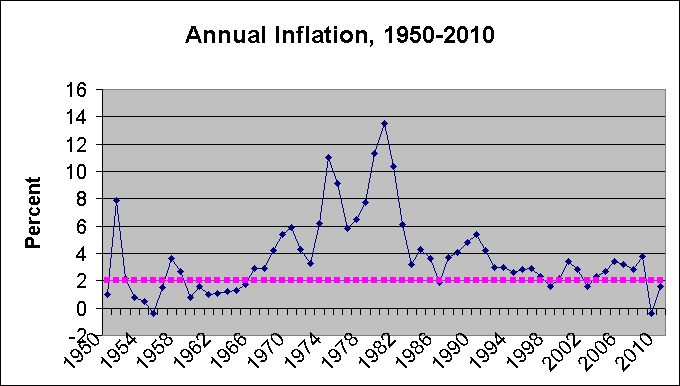February 25, 2011
It seems as though the Washington Post’s editorial board is losing sleep over inflation. Its lead editorial notes the recent rise in commodity prices and then warns that:
“Core inflation does indeed remain well within the Fed’s safety range, but it has nevertheless begun trending upward, and one leading forecaster, Deutsche Bank Economic Research, says it could hit 2.1 percent, the upper limit of the Fed’s usual target range, by the end of 2011. That could force the Fed to raise interest rates, slowing growth before unemployment has returned to pre-recession levels, in order to preserve its inflation-fighting credibility.”
Actually, 2.1 percent inflation is not “the upper limit of the Fed’s usual target range.” The Fed never explicitly set a target range and there are a range of views among the Fed’s open market committee (the body that sets interest rates) as to how high inflation can go before it poses any problem to the economy. For example, back in 1999 Chairman Ben Bernanke argued that in comparable circumstances Japan’s central bank should deliberately target a higher rate of inflation in the range of 3-4 percent to lower real interest rates.
As a practical matter, the inflation rate has rarely been below 2.1 percent. As can be seen, there was only one year in the decades of both the 80s and the 90s when the inflation rate was below the level that the Post wants the Fed to have as the top end of its target range.

Source: Bureau of Labor Statistics.
There is no obvious reason that the Fed should feel “forced” to raise interest rates if the core inflation rate happens to edge above 2.0 percent to preserve its credibility. Such an increase in interest rates would mean throwing more people out of work.
There are already tens of millions of people who have lost their jobs and/or their homes because of the Fed’s mismanagement of the economy. There is no reason that the Fed should deliberately put more people out of work just because the Post editors and their friends have irrational fears about inflation.







Comments